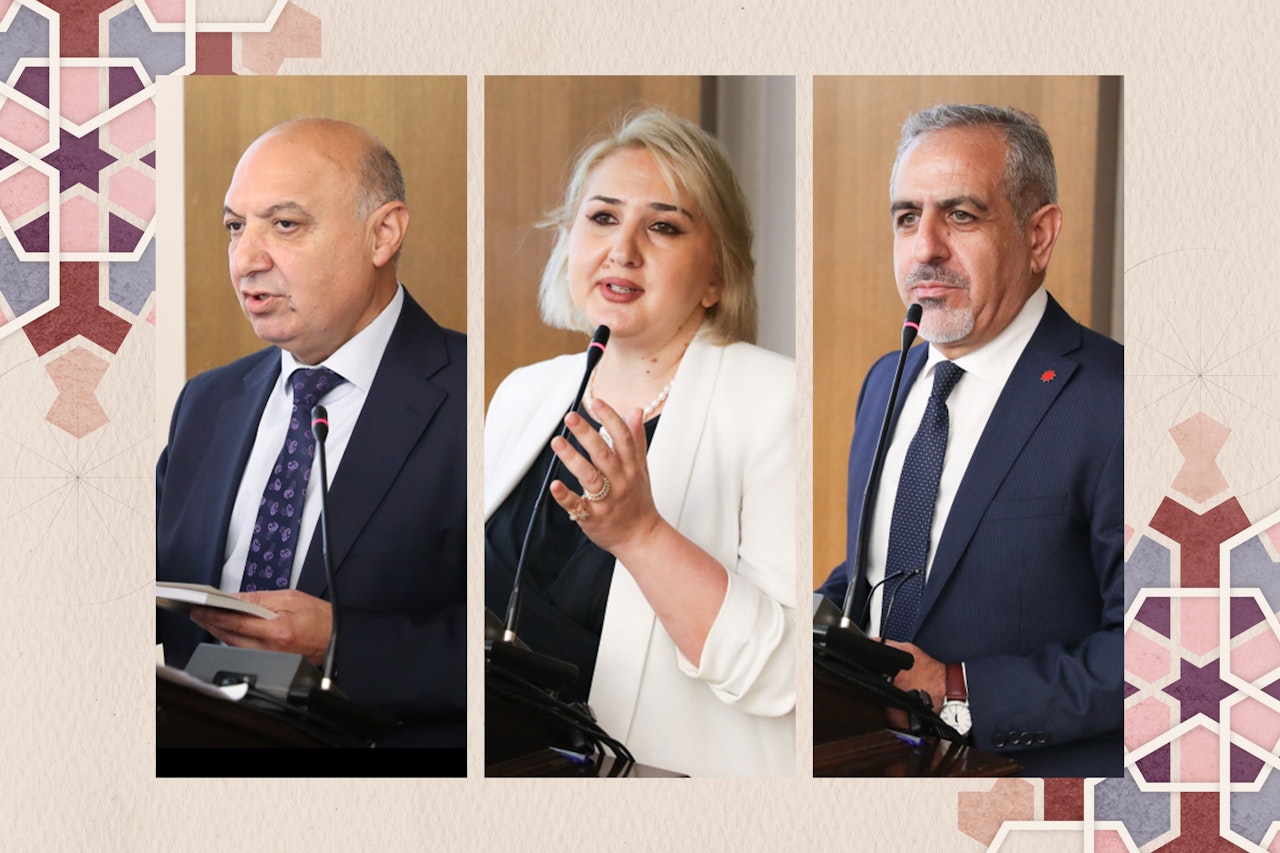Azerbaijan
Reimagining path to peace through harmony of science and religion
National discussion explores how the principle of the harmony of science and religion can address societal challenges, offering a path to social betterment.

National discussion explores how the principle of the harmony of science and religion can address societal challenges, offering a path to social betterment.

BAKU, Azerbaijan — In societies throughout the world grappling with religious extremism and scientific skepticism, can harmony between science and religion offer a path to lasting peace?
This was the central question explored at a recent national conference in Azerbaijan, organized by the Bahá’í community of that country in collaboration with the government’s State Committee on Religious Associations.
The conference, titled “Global Peace: Unity of Science and Religion,” brought together some 80 participants, including members of parliament and other officials, academics, journalists, and representatives of diverse faith communities to explore how neither science nor religion alone is sufficient to enable humanity to attain peace; rather, it is their harmonious integration that can provide the necessary insights and motivations for transformative action.
Ramazan Asgarli, a member of the National Spiritual Assembly of the Bahá’ís of Azerbaijan, elaborated on the principle of the harmony of science and religion. “To think about peace and take practical action, we draw knowledge from two systems: science and religion.”
He added: “One reveals the secrets of nature to us... provides the power to reveal things in the material realm through intellectual enquiry, while the other helps us navigate life and search for meaning. ...But both serve human well-being.”
World peace is not only possible but inevitable
Sayavush Heydarov, the Deputy Head of the State Committee for the Work with Religious Organizations, highlighted the significance of the conference, stating, “Our world faces numerous afflictions. We must seek a remedy to heal the wounds and chart a course towards global peace. In this journey, we need to carefully consider the parts that science and religion play in guiding us towards that destination.”
Mr. Asgarli, offered a perspective on the journey toward peace, quoting from the statement of the Universal House of Justice titled “The Promise of World Peace:”
“For the first time in history it is possible for everyone to view the entire planet, with all its myriad diversified peoples, in one perspective. World peace is not only possible but inevitable. It is the next stage in the evolution of this planet.”
Farah Asgarova, the conference’s moderator and a member of the country’s Office of External Affairs, elaborated on this powerful assertion, emphasizing that peace in its Bahá’í conception is not merely the absence of conflict. Rather, fundamental transformation of society’s structures is needed, informed by spiritual principles, such as the principles of the harmony of science and religion, the equality of women and men, and the oneness of humanity, among others.
Addressing prevailing misconceptions of human nature
Participants discussed how the principle of the harmony of science and religion can offer insights into societal challenges such as religious radicalization.
Mr. Asgarli emphasized that this principle encourages a rational approach to understanding human nature and society, while also drawing upon spiritual teachings that affirm our higher potential.
One of the main obstacles to peace, he explained, is a prevailing misconception about human nature that often goes unexamined. “Aggression and conflict dominate the world’s social, economic, and religious systems,” he said, “leading many to believe such behavior is innate and impossible to change.
“This view creates contradictions in relationships: while many people worldwide seek peace and harmony, they simultaneously accept that human nature is inherently selfish and aggressive, making progress and peace seem unattainable.”
Mr. Asgarli presented an alternative perspective: “By reframing human nature as capable of nobility and peace, we can work toward aligning our social structures and educational systems with a vastly different conception of human potential—one that can enable societal conditions for nurturing peace rather than conflict.”
A point of inflection in a national conversation
Participants noted that the conference provided a unique national forum to reflect on building peace through diverse perspectives, providing a pivotal point in deepening the ongoing national conversation about societal harmony and progress.
Yadigar Mammadli, head of the Media Department at the Baku International Multiculturalism Center, underscored the importance of inclusive discussions. He stated, “The security and salvation of humanity are to be found in global peace. How are we going to build it? We need to talk about it from different perspectives. I thank the Bahá’í community for such a courageous initiative.”
The conference also prompted reflections on the role of faith communities in fostering peace. Turan Irfan, a religious scholar, observed, “I am happy that the Bahá’ís [of Azerbaijan] initiated discussion on such a challenging topic and made it the focus of an expanding conversation.”
The conference’s impact extends beyond the event itself, with plans already under way to continue these conversations in smaller settings throughout the year, culminating in a second seminar on the theme of harmony between science and religion next year.